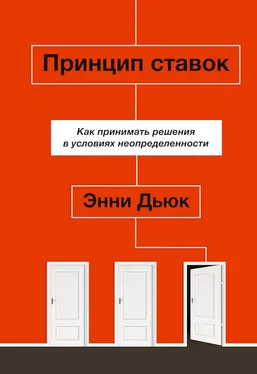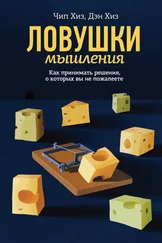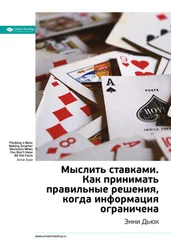«Hide Results to Seek the Truth: More Fields Should, Like Particle Physics, Adopt Blind Analysis to Thwart Bias». Nature 52 (October 8, 2015): 187–90.
Marcus, Gary. Kluge: The Haphazard Evolution of the Human Mind . Boston: Houghton Mifflin, 2008.
Marcus, Gary, and Ernest Davis. «Eight (No, Nine!) Problems with Big Data,» New York Times , April 6, 2014. https://www.nytimes.com/2014/04/07/opinion/eight-no-nine-problems-with-big-data.html.
Mauboussin, Michael. The Success Equation: Untangling Skill and Luck in Business, Sports, and Investing . Boston: Harvard Business Review Press, 2012. McGandy, Robert, D. Mark Hegsted, and Fredrick Stare. «Dietary Fats, Carbohydrates and Atherosclerotic Vascular Disease». New England Journal of Medicine 277, no. 4 (1967): 186–92, 245–47.
Merton, Robert K., «The Normative Structure of Science». 1942. Reprinted in The Sociology of Science: Theoretical and Empirical Investigations , edited by Norman Storer, 267–78. Chicago: University of Chicago Press, 1973.
Mezulis, Amy, Lyn Abramson, Janet Hyde, and Benjamin Hankin. «Is There a Universal Positivity Bias in Attributions? A Meta-Analytic Review of Individual, Developmental, and Cultural Differences in the Self-Serving Attributional Bias». Psychological Bulletin 130, no. 5 (September 2004): 711–47.
Mill, John Stuart, On Liberty . London: Walter Scott Publishing, 1859. Released on Project Gutenberg, 2011. https://www.gutenberg.org/files/34901/34901-h/34901-h.htm.
Miller, Dale, and Michael Ross. «Self-Serving Biases in the Attribution of Causality: Fact or Fiction». Psychological Bulletin 82, no. 2 (March 1975): 213–25.
Mischel, Walter. The Marshmallow Test: Why Self Control Is the Engine of Success . New York: Little, Brown, 2014.
Mitchell, Deborah, J. Edward Russo, and Nancy Pennington. «Back to the Future: Temporal Perspective in the Explanation of Events». Journal of Behavioral Decision Making 2, no. 1 (January 1989): 25–38.
Morewedge, Carey, Lisa Shu, Daniel Gilbert, and Timothy Wilson. «Bad Riddance or Good Rubbish? Ownership and Not Loss Aversion Causes the Endowment Effect». Journal of Experimental Social Psychology 45, no. 4 (July 2009): 947–51.
Mullally, Sinead, and Eleanor Maguire. «Memory, Imagination, and Predicting the Future: A Common Brain Mechanism?» The Neuroscientist 20, no. 3 (June 2014): 220–34.
Munnell, Alice, Wenliang Hou, and Anthony Webb. «NRRI Update Shows Half Still Falling Short». Center for Retirement Research at Boston College , no. 14–20, December 2014. http://crr.bc.edu/briefs/nrri-update-shows-half-still-falling-short/.
Murray, Bridget. «What Makes Mental Time Travel Possible?» APA Monitor on Psychology 34, no. 9 (October 2003): 62.
Myerson, Roger. Game Theory: Analysis of Conflict . Cambridge, MA: Harvard University Press, 1991.
Neiss, Michelle, Constantine Sedikides, and Jim Stevenson. «Self-Esteem: A Behavioural Genetic Perspective». European Journal of Personality 16, no. 5 (September 2002): 351–67.
Nisbett, Richard. Mindware: Tools for Smart Thinking . New York: Farrar, Straus and Giroux, 2015.
NobelPrize.org. «Economic Sciences Laureates: Fields».
Nyberg, Lars, Alice Kim, Reza Habib, Brian Levine, and Endel Tulving. «Consciousness of Subjective Time in the Brain». Proceedings of the National Academy of Sciences 107, no. 51 (December 21, 2010): 22356–9.
Oettingen, Gabriele. Rethinking Positive Thinking: Inside the New Science of Motivation . New York: Current, 2014.
Oettingen, Gabriele, and Peter Gollwitzer. «Strategies of Setting and Implementing Goals». In Social Psychological Foundations of Clinical Psychology , edited by James Maddox and June Price Tangney, 114–35. New York: Guilford Press, 2010.
Open Science Collaboration. «Estimating the Reproducibility of Psychological Science». Science 349, no. 6251 (August 28, 2015): 943 and aac4716–8.
Oswald, Dan. «Learn Important Lessons from Lombardi’s Eight-Hour Session». HR Hero (blog), March 10, 2014. https://hrdailyadvisor.blr.com/2014/03/10/learn-important-lessons-from-lombardis-eight-hour-session/.
Oyserman, Daphna, Deborah Bybee, Kathy Terry, and Tamara Hart-Johnson. «Possible Selves as Roadmaps». Journal of Research in Personality 38, no. 2 (April 2004): 130–49.
Oyserman, Daphna, Mesmin Destin, and Sheida Novin. «The ContextSensitive Future Self: Possible Selves Motivate in Context, Not Otherwise». Self and Identity 14, no. 2 (March 2015): 173–88.
Pariser, Eli. The Filter Bubble: What the Internet Is Hiding from You . New York: Penguin, 2011.
Paulos, John. Innumeracy: Mathematical Illiteracy and Its Consequences . New York: Hill & Wang, 1989.
Pollan, Michael. In Defense of Food: An Eater’s Manifesto . New York: Penguin, 2008.
Pollan, Michael, «History of Nutritionism» in «Michael Pollan and ‘In Defense of Food: The Omnivore’s Solution,’» Otis Lecture at Bates College, Lewiston, Maine, October 27, 2008. http://www.bates.edu/food/foods-importance/omnivores-solution/history-of-nutritionism.
Pollan, Michael. The Omnivore’s Dilemma: A Natural History in Four Meals . New York: Penguin, 2006.
Poundstone, William. Prisoner’s Dilemma . New York: Anchor, 1993.
Raha, Somik. «A Conversation with Professor Ron Howard: Waking Up». Conversations.org, October 17, 2013. http://www.conversations.org/story.php?sid=373.
Rees, Tim, David Ingledew, and Lew Hardy. «Attribution in Sport Psychology: Seeking Congruence Between Theory, Research and Practice». Psychology of Sport and Exercise 6 (2005): 189–204.
Reiner, Rob, dir. The Princess Bride . Written by William Goldman, produced by Andrew Scheinman and Rob Reiner. 1987.
Rhee, Nari. «The Retirement Savings Crisis: Is It Worse Than We Think?» Washington, DC: National Institute on Retirement Security, June 2013. https://www.nirsonline.org/reports/the-retirement-savings-crisis-is-it-worse-than-we-think/.
Rich, Nathaniel. «When Parks Were Radical». Atlantic , September 2016. https://www.theatlantic.com/magazine/archive/2016/09/better-than-nature/492716.
Roeder, Oliver. «How Trump’s Nominee Will Alter the Supreme Court». FiveThirtyEight.com, January 30, 2017. https://fivethirtyeight.com/features/how-trumps-nominee-will-alter-the-supreme-court.
Rosati, Alexandra, Jeffrey Stevens, Brian Hare, and Marc Hauser. «The Evolutionary Origins of Human Patience: Temporal Preferences in Chimpanzees, Bonobos, and Human Adults». Current Biology 17, no. 19 (October 2007): 1663–8.
Ross, H. Laurence. «Drinking and Driving: Beyond the Criminal Approach». Alcohol Health & Research World 14, no. 1 (January 1990): 58–63.
Ross, Lee, and Richard Nisbett. The Person and the Situation: Perspectives of Social Psychology . New York: McGraw-Hill, 1991; London: Pinter & Martin, 2011. Ross, Michael, and Fiore Sicoly. «Egocentric Biases in Availability and Attribution». Journal of Personality and Social Psychology 37, no. 3 (March 1979): 322–36.
Santos, Laurie, and Alexandra Rosati. «The Evolutionary Roots of Human Decision Making». Annual Review of Psychology 66 (January 2015): 321–47. Savage, David. «Clarence Thomas Is His Own Man». Los Angeles Times , Nation, July 3, 2011. http://articles.latimes.com/2011/jul/03/nation/la-na-clarence-thomas-20110703/2.
Schacter, Daniel, Donna Addis, Demis Hassabis, Victoria Martin, R. Nathan Spreng, and Karl Szpunar. «The Future of Memory: Remembering, Imagining, and the Brain». Neuron 76, no. 4 (November 21, 2012): 677–94.
Читать дальше
Конец ознакомительного отрывка
Купить книгу












